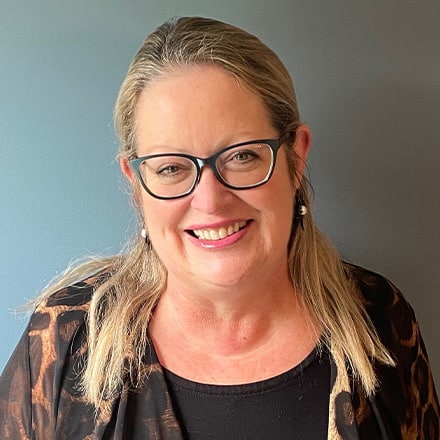The Heart Behind Our Healthcare Heroes

Critical equipment shortages, from personal protective equipment to ventilators, have dominated the news through the COVID-19 crisis, but there’s a heart beating behind the scenes that keeps our vital healthcare organizations alive. It’s comprised of healthcare administrators who support the front-facing heroes like physicians and nurses, keeping the operational lifeblood flowing throughout the organization. Academia plays an important role in preparing these administrators to step up in a crisis, as well as to keep things running day-to-day.
Healthcare administrators are the professionals with the education and skills to handle everyday operations and sentinel events. They might find themselves overseeing an entire facility, outpatient clinic, hospital floor or a specialized department such as cardiovascular services. They earn degrees in healthcare administration at institutions like Southern New Hampshire University (SNHU), then go to work behind the frontline heroes, ready to take action to help serve the patient population.
They wear many hats, and in a time of crisis healthcare administrators’ leadership, technical strengths and soft skills are put on full display. In all corners of a healthcare facility, they lead teams that order supplies, pay vendors, admit patients, insert billing codes and clean facilities to keep things running smoothly so healthcare workers can focus on healing.
Warriors Behind the Scenes
 Dr. Matt Frederiksen-England, who teaches at SNHU, is one such behind-the-scenes hero. As chief compliance officer at the Wyoming Medical Center, he’s spent much of his time over the last month educating staff on new billing regulations, implementing new telehealth and tele-ICU services and keeping physicians, nurses and other administrators abreast of the Health Insurance Portability and Accountability Act (HIPAA) privacy law during a time of emergency. He also tackled issues that dominated the news. While the public was hearing about potential ventilator shortages, Frederiksen-England worked with his hospital’s ethics committee on a ventilator allocation plan should the organization run out of equipment.
Dr. Matt Frederiksen-England, who teaches at SNHU, is one such behind-the-scenes hero. As chief compliance officer at the Wyoming Medical Center, he’s spent much of his time over the last month educating staff on new billing regulations, implementing new telehealth and tele-ICU services and keeping physicians, nurses and other administrators abreast of the Health Insurance Portability and Accountability Act (HIPAA) privacy law during a time of emergency. He also tackled issues that dominated the news. While the public was hearing about potential ventilator shortages, Frederiksen-England worked with his hospital’s ethics committee on a ventilator allocation plan should the organization run out of equipment.
Frederiksen-England’s leadership trickled down to his staff. He kept them aware of how they could support those on the frontline while maintaining compliance and kept them alert to threats, such as hackers trying to take advantage of crisis situations. He did this all while personally helping the medical center’s bottom line with a temporary 20% pay cut to offset lost revenue due to a hold placed on elective surgeries.
A Flexible Response
Many healthcare departments have shifted to remote work, but continue to work cohesively to ensure that operations run efficiently and smoothly. Materials management, accounts payable, marketing, billing, auditing, information systems and patient financial services are just a few of the areas that are showing their flexibility during this crisis.
Leading these remote teams are healthcare administrators with various titles. In the hospital setting, some are referred to as supervisors, managers, directors, vice presidents, CFOs and CEOs. Some of the questions they’ve tackled include:
- How can we obtain Personal Protective Equipment (PPE) for staff?
- How can we handle a surge of critically ill patients, while maintaining the safety of staff and other patients?
- How will we pay for emergency supplies and equipment when we aren’t able to get staff in the office to release checks?
- How will we ensure just-in-time delivery of medication needed for our patients?
- How will we ensure that patient charges consider the government guidelines?
- How will we ensure that patient safety and quality is also applied to our healthcare staff?
- How will we ensure that our elevators, walls, surfaces and doorways are continually sanitized?
Bringing Real-World Examples to Academia
Administrators are preparing for new and evolving patient needs during COVID-19, too. For example, many organizations had already implemented telehealth programs, while others were at the introductory stages. With the pandemic in full swing, the government stepped up to loosen HIPAA requirements and Medicare/Medicaid billing practices in a way that allowed for rapid deployment of telehealth.
Frederiksen-England quickly drew upon the skills he teaches his students to implement processes, such as a tele-ICU program, a tele-dialysis program, and a provider direct-to-consumer telehealth program in less than two weeks. As adjunct faculty at SNHU, he brought this experience to the classroom, sharing these timely examples with his students. Experienced professionals such as doctors are critical to academic programs, as they prepare the next generation of healthcare administrators to respond to future crises.
 Scott Andritsch, MBA, is another SNHU adjunct faculty member who put his skills to good use and shared his story with his students. As vice president and chief financial officer of Valley Professionals Community Health Center, he was able to convert patient visits to telehealth all within the remarkable time span of one week.
Scott Andritsch, MBA, is another SNHU adjunct faculty member who put his skills to good use and shared his story with his students. As vice president and chief financial officer of Valley Professionals Community Health Center, he was able to convert patient visits to telehealth all within the remarkable time span of one week.
During March, Andritsch’s organization was on track to serve over 9,100 patient visits for the month. However, once Indiana enforced its stay-at-home orders and the pandemic became a reality, visits decreased rapidly. Within two days, Andritsch had two clinic sites designated to treat critically ill patients and another for patients receiving wellness care only. Other clinics were designated as ill and wellness to safely serve the local communities.
Andritsch also implemented a tele-ICU program, a tele-dialysis program, and a provider direct-to-consumer telehealth program in less than two weeks. Once these were in place, he was able to show his class how healthcare administration skills directly help treat patients while protecting the financial health of an organization.
“Implementing these services (was) challenging as colleagues in the revenue cycle, quality, information technology and other support staff who are normally involved in this change of seeing patients, were quickly transitioned from working in the office to working at home. To coordinate this change in service, the entire leadership, medical staff and IT staff at VPCHC had to communicate and work together to make this happen.” Andritsch said.
Academia Builds the Backbone of Our Healthcare System
These faculty examples show students the importance of skills like flexibility, communication and critical thinking. They build this foundation in an academic setting, learning from professionals like Andritsch and Frederiksen-England so they’re just as ready to handle future crises as they are to handle day-to-day operations once they graduate.
In the same way academia prepared our physicians and nurses to be on the front lines, it readies healthcare administrators to keep the healthcare ship afloat and navigate it safely through troubled seas. Programs like SNHU’s healthcare administration degree prepare students to become the heart behind our healthcare heroes. They stand ready to ensure that front line workers have everything they need to treat and heal their patients.
Dr. Toni Clayton is the associate dean of Health Professions at Southern New Hampshire University. Connect with her on LinkedIn.
Explore more content like this article

Academic Spotlight: Dr. Shakera Moreland, Health Sciences Clinical Faculty Member

SNHU Hosts 5th Annual Global Summit for Healthcare Professionals

How to Become a Nurse in 4 Steps
About Southern New Hampshire University

SNHU is a nonprofit, accredited university with a mission to make high-quality education more accessible and affordable for everyone.
Founded in 1932, and online since 1995, we’ve helped countless students reach their goals with flexible, career-focused programs. Our 300-acre campus in Manchester, NH is home to over 3,000 students, and we serve over 135,000 students online. Visit our about SNHU page to learn more about our mission, accreditations, leadership team, national recognitions and awards.


